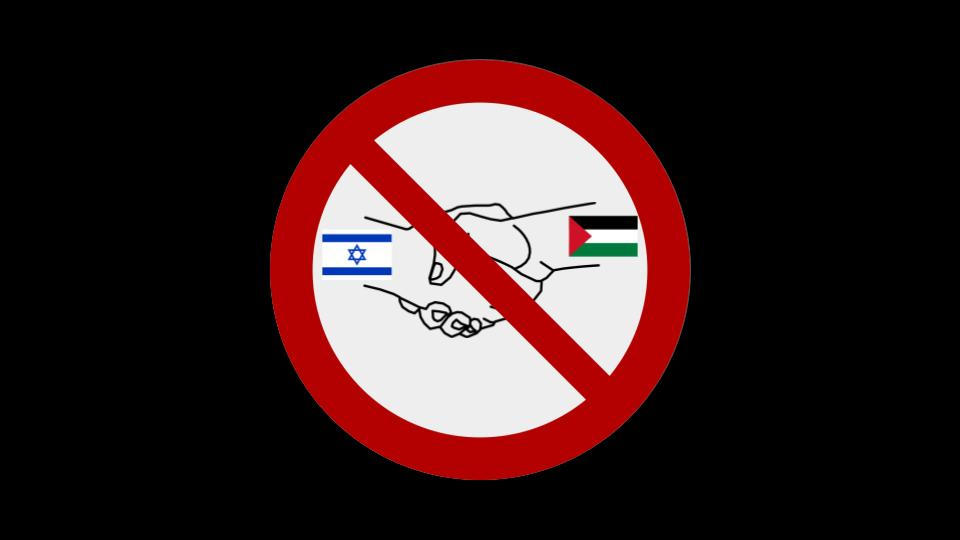“Anti-normalization” is a policy/core value of many anti-Israel extremist groups not to engage with Jews, Israelis, and others who believe in Israel’s right to exist (“Zionists”). They believe that engaging with Zionists requires giving in to perceived power dynamics and thus giving Zionism credibility. Anti-Israel groups oppose and/or refuse to engage in any dialogue or cooperation with Jews or Israelis unless they adopt hardline and/or extremist anti-Israel political stances. These stances include: “ending the occupation;” “equal rights for Israelis and Palestinians;” and “a full right of return for Palestinian refugees.”
On campus, anti-normalization can include anything from refusing to engage in conversation with a pro-Israel friend, to refusing to allow Zionists to attend campus events. Additionally, the tactic includes preventing pro-Israel or anti-boycott messages from being shared, often by shutting down or preventing pro-Israel speakers from appearing on college campuses. While anti-normalization is typical of anti-Israel extremist groups, groups not related to this conflict, like the organizers of the Chicago Dyke March, have also adopted this tactic.
Instances of Anti-Normalization:
- A Muslim student at San Diego State University (“SDSU”) was assaulted in an act of Islamophobic hate. Following the event, the SDSU Muslim Student Association drafted a list of demands to students and the administration, asking for zero tolerance of Islamophobia and that the campus become a safer environment. Thirty student organizations at SDSU co-signed onto the list of demands, including Students Supporting Israel (“SSI”). Members of the pro-Palestinian group, Students for Justice in Palestine (“SJP”), rejected SSI’s signature. SSI was the only organization to be excluded. SJP claimed, “It didn’t serve the interests of the community” to include SSI.
- The National LGBTQ Task Force hosted a conference in Chicago. As part of the conference, a reception was given about the experiences and challenges of the LGBTQ community in Israel. Over 200 protesters gathered outside the event and shouted hateful slogans, banged drums, and waved banners. Attendees were unable to enter, and the invited Israeli LGBTQ speakers were escorted from the event by security. The event was shut down by the demonstrators.
- Palestinian human rights activist Bassem Eid was shouted down and threatened by protesters at a speech at the University of Chicago. The protesters claimed that Mr. Eid was not fit to speak on behalf of the Palestinian people due to his critiques of Palestinian government and society. Several argumentative protesters were removed by police, and Mr. Eid required a police escort to leave the event.

